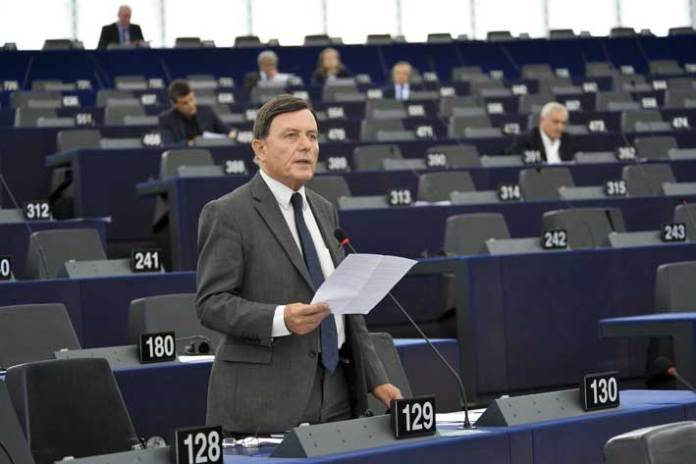
Former Prime Minister Alfred Sant told the European Parliament that Europe is facing an unprecedented crisis and unless some way is found for effective European action that really addresses head on the dangers of the ongoing recession, the negative social and economic impacts will multiply.
In a statement during a plenary session that discussed the preparations of the European Council meeting of heads of governments, Alfred Sant stressed that the depth of the peril the economic crisis entails for the European economic system should be recognised in deeds, not just in words. To deal with the crisis satisfactorily, the criteria of the recent past hardly apply.
On 19 June, the members of the European Council met via video conference to discuss the issue of a recovery fund to respond to the COVID-19 crisis and a new EU long term budget on the basis of the proposal for a new recovery instrument and for the multiannual financial framework for 2021-2027 presented by the European Commission on 27 May 2020.
Alfred Sant noted that the European Council should be laying the foundations for a mutually acceptable agreement and it is essential that the recovery package achieves its target to help relaunch the European economy. Meanwhile, the long-term goals of the Union, especially those focused on cohesion between its territories, must be upheld.
“With all its flaws, the plans presented by the Von der Leyen Commission go a good way towards meeting this vital challenge. Its thrust has to be endorsed. Arguments about, among others, whether loans or grants should be deployed and how recovery projects should be selected and conditioned should be subordinated to this overall priority”, stated Alfred Sant. Several northern European nations are unhappy about the recovery plan because it involves collectively raising €500 billion as grants for countries worst hit by the pandemic, particularly in South Europe. A group known as the “frugal four” – Sweden, Denmark, Austria and the Netherlands – had clearly indicated their continued opposition to grants, rather than loans.




































